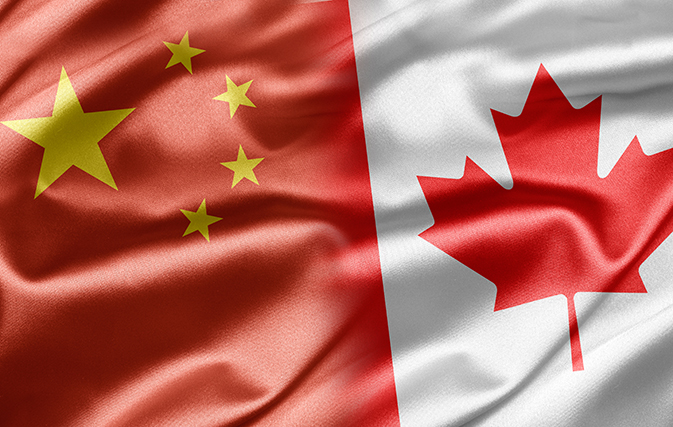OTTAWA — Canada shot back at China on Tuesday, branding the death sentence imposed on a British Columbia man as inhumane, and flaunting the support of its allies in trying to win the release of two other imprisoned Canadians.
The two countries toughened their respective travel advisories, making a mockery of a last year’s bilateral feel-good initiative to boost tourism between them.
Canada updated its travel advisory for China on Jan. 14 to warn Canadians of “the risk of arbitrary enforcement of local laws.”
Foreign Affairs Minister Chrystia Freeland said Canada has asked China to spare the life of Robert Lloyd Schellenberg, who was originally sentenced in 2016 to a 15-year term for drug smuggling. On Monday, after a new trial, he was sentenced to die.
“We believe it is inhumane and inappropriate, and wherever the death penalty is considered with regard to a Canadian we speak out against it,” Freeland said in Saint-Hyacinthe, Que.
Freeland also trumpeted a long list of allies that Canada has courted in its efforts to free Michael Kovrig and Michael Spavor, two other Canadians imprisoned last month after Canada arrested a Chinese executive at the request of the United States. She said she wanted to “emphasize” how glad Canada is that “a large and growing group of our allies has stood with Canada.”
Freeland rhymed off a list of countries – Germany, France, the Netherlands, the European Union, the United States, Britain, Australia, Estonia, Lithuania and Latvia – for “publicly coming out and speaking against these arbitrary detentions. And that is very important.”
The international outreach has sparked Chinese ire, including a scathing attack from Beijing’s envoy in Ottawa that it smacks of “Western egotism and white supremacy.”
Prime Minister Justin Trudeau said Monday he was very concerned to see China “acting arbitrarily.”
Chinese foreign ministry spokeswoman Hua Chunying upbraided Trudeau on Tuesday, saying he should “respect the rule of law, respect China’s judicial sovereignty, correct mistakes and stop making irresponsible remarks.”
Hua told reporters in Beijing that China expresses “our strong dissatisfaction with this” and is cautioning its citizens about travelling to Canada. It urged Chinese citizens to consider their personal circumstances and “fully assess the risks of going to Canada for tourism.”
The Chinese foreign ministry’s consular-affairs office also published a notice Tuesday saying that Canada has recently “arbitrarily detained” a Chinese national – a reference to Canada’s arrest of Chinese telecommunications executive Meng Wanzhou.
Canada has asked China’s ambassador to Canada for clemency in Schellenberg’s case, said Freeland, adding that she had “a very emotional conversation” with Schellenberg’s father on Monday.
“With the case of Mr. Schellenberg, it’s important for us to remember that we’re talking about a human being, about a person,” the minister said. “We really understand how difficult the situation is, and I think the Schellenberg family has our country’s sympathy.”
Schellenberg had a history of criminal drug offences that dated back to 2003, and pleaded guilty in April 2012 to cocaine trafficking in the Supreme Court of British Columbia, according to a transcript of the hearing.
Freeland said even though Canada believes the death penalty is wrong, “Canadians who travel to countries where the death penalty is part of the criminal justice system need to be aware that it exists. That is just a reality.”
With files from The Associated Press and The Canadian Press

